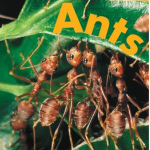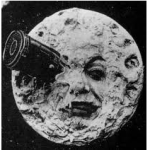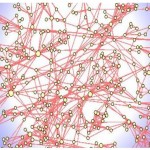In our previous post we looked at tools for the three phases of change (What to Change, What to Change to and How to Make the Change Happen). This post is in response to several comments that asked about the ‘why’ of change. Dr. W. Edwards Deming used to say: “The only thing that does […]
Change: Tools for Thinking, Planning and Enacting Change
Continuing our series on Change. In our previous post, we mentioned the three phases of change: what to change what to change to how to make the change happen For each of these phases, there is a powerful Thinking Process Tool from the Theory of Constraints (TOC). Let’s look at the three phases. What to […]
Change: Intuition, Understanding and Knowledge
Continuing our series on change. We live in an extraordinarily complex, post-digital world, where interdependencies and interconnections multiply at an ever-increasing speed. The cause-effect relationships that govern the world as we experience it create a super intricate ‘network of networks’ and we have a very limited understanding of the underlying properties of these networks and […]
Network of Networks (continued): The Intrinsic Risk of Super Hubs
When an enterprise is successful and grows in size, there is inevitably an increase in the number and quality of interdependencies, i.e. exchanges with other parts of the network of enterprises it is part of. These can include information, money, manpower, and goods etc. This leads to a double level of complexity: one level is […]
Network of Networks: Avoiding Catastrophe Through a Systemic Vision of Enterprises
We’re back for 2012, kicking off with a look at the ‘too big to fail’ fallacy from a scientific point of view this week. We’ll be following this up with a series on why people find it so hard to change, and a response to ‘No Fear’ author Pekka A. Vilijakainen and his invitation to […]
Can Ecosystems Show How to Fix the Euro?
This post, by Dr. Giovanni Siepe, is our last before the holidays. We wish you all a very happy holiday season, and we’ll be back in 2012! In an article by Debora MacKenzie in the New Scientist magazine entitled ‘Can Ecosystems Show How to Fix the Euro?’, the eurozone is analyzed as a complex networked […]
Skills vs. Culture in Education – Developing a Solution
In our previous post we looked at the conflicting positions of a school that emphasizes skills vs. a school that emphasizes culture. The ‘skill school’ protects the need to develop ability to apply skills in a work environment, whereas the ‘culture school’ protects the need to develop the ability to think and analyze in an […]
Looking at the Core Conflict in Education and Innovation Today
In this post we will be looking at what we consider to be the Core Conflict regarding Education and Innovation. We have analyzed this conflict using a rigorous tool that combines intuition with logical analysis to produce a solution that is a non-linear synthesis. This Thinking Process Tool is known as the Core Conflict Cloud […]
Why Physics is Crucial for Understanding Global Business: the Network of Corporations
The entire world is in turmoil; people are on the streets complaining about the economy and the way politicians and experts are dealing with the crisis. The ‘Occupy Wall Street’ movement is gaining somewhat fuzzy momentum. Today they are organizing a march against Goldman Sachs in New York. Is the corporate world intrinsically unfair? A […]
Donating is not just good, it’s smart
In a recent post, Seth Godin underlines the lack of common sense behind charity galas: “…the gala is actually corrupting. Attendees are usually driven by social and selfish motivations to attend, and thus the philanthropic element of giving–just to give–is removed.” Charity bashes may be fun for the attendees, and they may in certain cases […]












